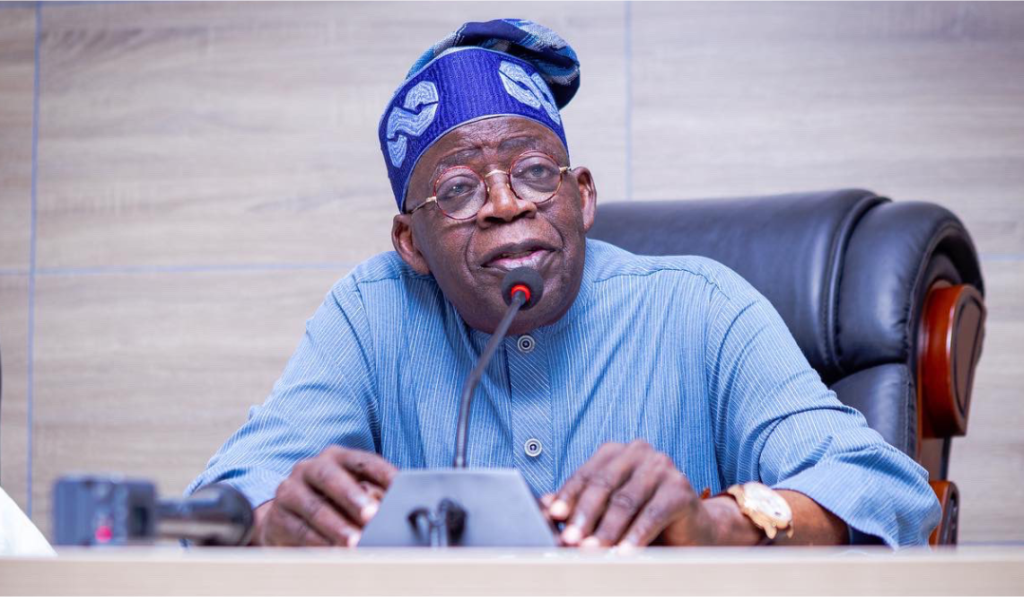SERAP’s Ultimatum to President Tinubu: A Call for Accountability in Nigeria’s Oil Sector
The Socio-Economic Rights and Accountability Project (SERAP) has issued a stern seven-day ultimatum to President Bola Tinubu, demanding decisive action against alleged corruption within Nigeria’s oil sector. Focusing on the 2021 audit report released by the Office of the Auditor-General of the Federation, SERAP’s ultimatum centers on the alleged disappearance, diversion, and theft of over N26 billion from the Petroleum Technology Development Fund (PTDF) and the Federal Ministry of Petroleum Resources. The organization insists on a thorough investigation by the Attorney General, Lateef Fagbemi (SAN), and relevant anti-corruption agencies, emphasizing the urgency of recovering the missing funds and holding those responsible accountable. Failure to comply within the stipulated timeframe, SERAP warns, will result in legal action to compel the government’s adherence to its constitutional and international obligations.
The 2021 audit report, released in November 2024, paints a troubling picture of financial mismanagement and potential corruption within the oil sector. It details a series of questionable expenditures, including over N25 billion disbursed for contracts lacking supporting documentation, N326 million unaccounted for in two banks, and millions more spent on projects without proper approvals, evidence of execution, or even completion of services. These irregularities, the Auditor-General fears, point to potential diversion of public funds, demanding their immediate recovery and return to the national treasury. The magnitude of these allegations, SERAP argues, constitutes a severe breach of public trust, violating the Nigerian Constitution, anti-corruption legislation, and international agreements to which Nigeria is a signatory.
SERAP’s call for accountability underscores the stark contrast between Nigeria’s vast oil wealth and the limited benefits enjoyed by its citizens. Despite being a major oil producer, Nigeria grapples with significant economic challenges, including a substantial budget deficit and a mounting debt crisis. SERAP contends that rampant corruption within the oil sector deprives Nigerians of the resources rightfully theirs, hindering development and exacerbating the country’s financial woes. The organization argues that recovering the missing funds and plugging the loopholes that allow such mismanagement are crucial steps towards addressing these challenges. Moreover, they advocate for allocating recovered funds towards mitigating the budget deficit and easing the debt burden, directly benefiting the Nigerian people.
The organization’s ultimatum is grounded in Nigeria’s constitutional and international legal obligations. SERAP cites Section 16(1) of the Nigerian Constitution, which mandates the government to secure the maximum welfare, freedom, and happiness of every citizen based on social justice and equality. Furthermore, it references international agreements like the UN Convention against Corruption and the African Union Convention on Preventing and Combating Corruption, reinforcing the government’s responsibility to combat corruption and promote transparency. By highlighting these legal frameworks, SERAP underscores the government’s duty to act decisively and uphold its commitments to both its citizens and the international community.
The specific allegations outlined in the Auditor-General’s report provide a detailed account of the alleged financial improprieties. These range from large sums disbursed without proper documentation to smaller, yet equally concerning, instances of misappropriation. The report details over N25 billion in payments for contracts without supporting documents, raising serious questions about the legitimacy and purpose of these transactions. Further irregularities include N326 million deposited in two banks with no clear accounting, N107 million spent on a library automation system without the necessary approval from the National Information Technology Development Agency (NITDA), and N46 million paid to three companies for services lacking evidence of execution. The report also flags N60 million in unremitted stamp duty fees from capital expenditure contracts, N64 million for allegedly unsupplied store items, and N41 million disbursed for services not yet performed or goods not yet delivered. Additionally, N137 million was allegedly used for recurrent expenditures without National Assembly approval, and N232 million was paid to seven companies for “stakeholders’ engagement in the Niger Delta” without adequate details regarding the nature, location, or justification of the engagement.
SERAP’s ultimatum serves as a critical reminder of the importance of transparency and accountability in the management of Nigeria’s oil resources. The organization’s demands – a thorough investigation, prosecution of those responsible, and recovery of stolen funds – are not merely calls for justice but essential steps towards ensuring that Nigeria’s oil wealth benefits its citizens. By holding the government accountable, SERAP aims to contribute to a more equitable and prosperous future for all Nigerians. The organization’s unwavering stance against corruption in the oil sector is a vital component in the broader fight for good governance and sustainable development in Nigeria. The seven-day deadline adds a sense of urgency to the matter, signaling SERAP’s commitment to pursuing legal action if necessary to ensure that justice is served and the missing funds are recovered.














